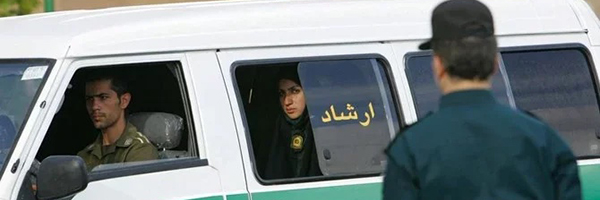Iranian prosecutor general indicates suspension of ‘morality police’
 The Cradle, December 4, 2022 — While Montazeri confirmed that operations of the morality police are currently over, there is no indication that they have been permanently dissolved.
The Cradle, December 4, 2022 — While Montazeri confirmed that operations of the morality police are currently over, there is no indication that they have been permanently dissolved.
Iranian Prosecutor General Mohammad Jafar Montazeri announced that the country suspended its “morality police” force following months of unrest and violence.
Montazeri confirmed the suspension of the morality police on 3 December, during a speech at an event highlighting the “hybrid war during recent riots,” in which Iran blamed foreign actors for inciting violent riots and attacks on security forces by separatist groups.
When asked about the suspension of the “morality police,” Montazeri responded, saying, “it has no connection with the judiciary and was shut down by the same place that it had been launched from in the past.”
Iran’s Fars News Agency reported that the “morality police” would be suspended until further notice but that parliament would debate the exact procedure and whether or not the suspension was indefinite.
Additionally, he said that the mandatory headscarf law was under review.
“Both parliament and the judiciary are working [on the issue],” Montazeri said during his speech, adding that the country “will see the results in a week or two.”
Iran’s parliament will debate the exact procedure and see if any changes need to be made to the existing hijab law.
Iran’s main Reformist party called for the law’s suspension in September following Mahsa Amini’s death on 16 September.
An Iranian official said on 28 November that over 300 people had been killed in the ongoing protests, riots, and general unrest sparked by the death of 22-year-old Mahsa Amini.
“Everyone in the country has been affected by the death of this lady … I don’t have the latest figures, but I think we have had perhaps more than 300 martyrs and people killed,” said Brigadier General Amirali Hajizadeh of Iran’s Islamic Revolutionary Guard Corps (IRGC), referring to the victims as “the best sons of the country.”
However, on 3 December, Iran’s Supreme National Security Council announced that the death toll exceeded 200, including security officers, civilians, protesters, separatists, and rioters.
Since the start of the riots, ethnic separatist groups and extremist elements have taken advantage of the security situation in the country, launching attacks on security forces and places of worship.
On 7 November, Iranian security and intelligence forces arrested 26 ISIS members involved in the recent shooting attack on the Shah Cheragh shrine in the southern province of Shiraz.
Additionally, Iran regularly launches border security operations against the Kurdistan Democratic Party of Iran (KDPI); the outlawed group operates in northern Iraq and has been responsible for attacks on the country’s border regions.
Iran has accused foreign powers of instigating unrest in the country. General Qolamreza Soleimani, the head of Iran’s Islamic Revolutionary Guard Corps (IRGC) auxiliary forces – known as the Basij – was quoted by Tehran Times as saying during a speech addressing the group’s members that “47 spy agencies waged an all-out hybrid war against the Islamic Republic of Iran.”
